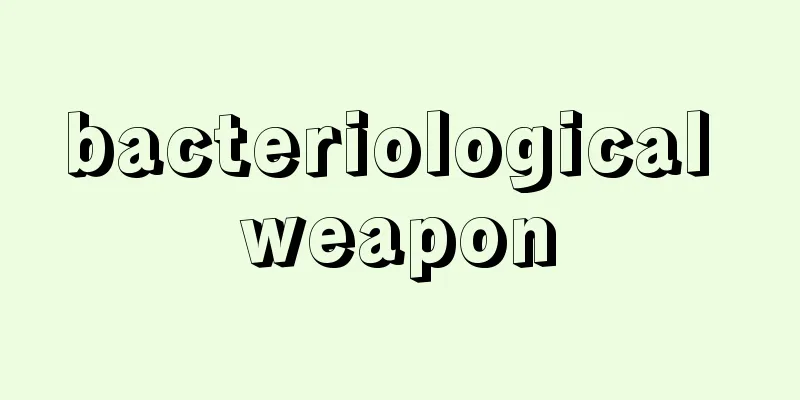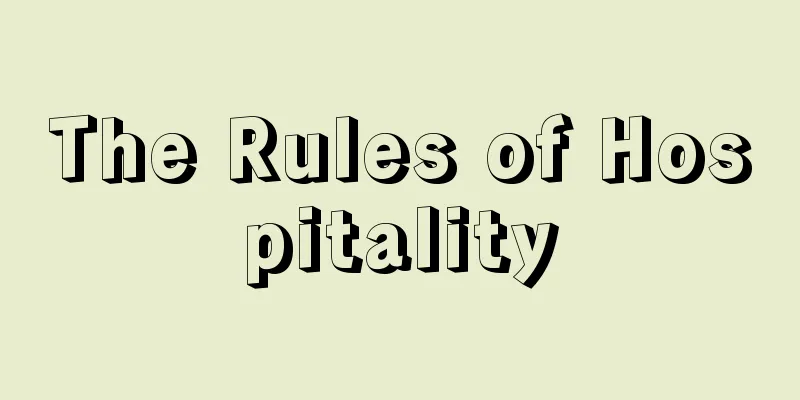bacteriological weapon

|
...However, the toxins produced by bacteria, such as botulinum toxin, are called toxin weapons and are distinguished from other toxins. Because virology was not established until World War I, the Geneva Protocol, signed in 1925 to ban chemical weapons or poison gas, used the term bacteriological warfare methods, and for this reason, biological weapons in general are still sometimes called bacteriological weapons. *Some of the terminology explanations that mention "bacteriological weapon" are listed below. Source | Heibonsha World Encyclopedia 2nd Edition | Information |
|
…しかし,ボツリヌス毒素など菌が産生した後の毒素は毒素兵器toxin weaponとよばれ区別されている。第1次大戦まではウイルス学が確立していなかったことなどのため,1925年に調印された化学兵器ないし毒ガスの禁止を目的とするジュネーブ議定書では細菌学的戦争方法という用語を使用し,このため,今でも生物兵器全体を細菌兵器bacteriological weaponとよぶことがある。 ※「bacteriological weapon」について言及している用語解説の一部を掲載しています。 出典|株式会社平凡社世界大百科事典 第2版について | 情報 |
Recommend
Sundarban (English spelling)
The area refers to the leading edge of the Ganges ...
Yoshiki Otsuka
⇒ Sogo Otsuka Source: Kodansha Digital Japanese Na...
Masayoshi Ohira
Born March 12, 1910 in Toyohama, Kagawa [Died] Jun...
Johan Barthold Jongkind
Dutch landscape painter. Born near Rotterdam as t...
Guinizelli, G. (English spelling) GuinizelliG
...The Sicilian School had already adopted the Pr...
João IV
1604‐56 King of Portugal. Reigned 1640-56. Founder...
Jeune France (English spelling)
…The year after graduating from the conservatory ...
Brassó (English spelling)
…Capital of the county of the same name. In Hunga...
Sardine tongue net - Sardine tongue net
…At first, they failed repeatedly and had no fish...
Saloi
…In Eastern Christian monastic life, complete sol...
Anato-so - Anou-no-sho
A manor of the Konoe family located in Shiga Count...
Georgi Dimitrov
Leader of the Bulgarian Communist Party, General ...
Kanamaru
Located in central Gunma Prefecture, this area str...
cadavre exquis (English spelling) cadavre exquis
…For example, A. Breton and his friends would get...
Shichiri-to - Shichiri no Watashi
The only sea route on the Tokaido that ran between...









